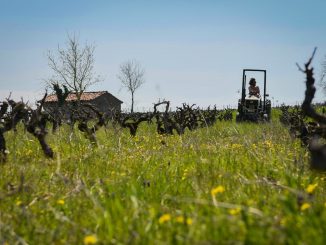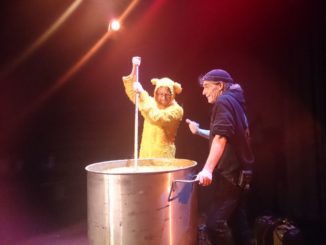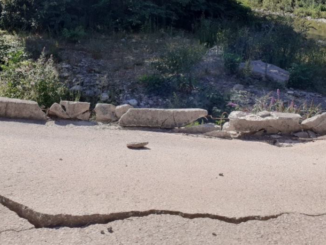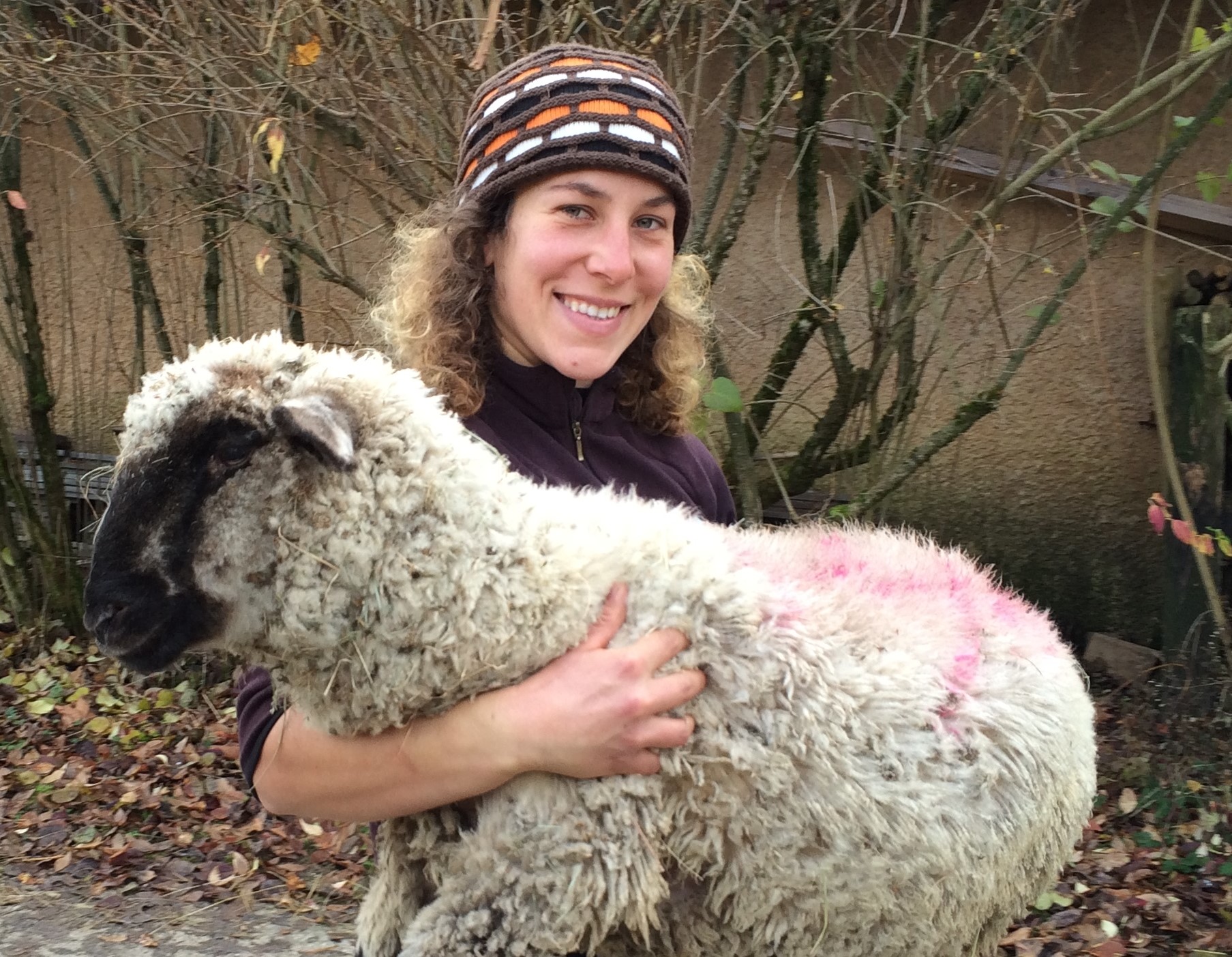
As protests by French farmers continue, we look deeper into the reasons for their frustration. Marie Halicki, a soon-to-be freshly installed farmer in the French Alps, shares her experience wading through the quagmire just to become a farmer. This is translated from French.
Tonight, even if I don’t agree 100% with all the agricultural blockages, I must nevertheless share my feedback on my installation journey.
I’ve worked in tourism and sales, I’ve scrubbed the filthy aisles of a large supermarket in Grenoble, I’ve run as a salaried employee behind sheep for 9 months, I’ve cleaned cows’ udders in the Beaufortain, I’ve done educational work with kids, and I’ve been working under horses’ feet for ten years. All that, put together, adds up to a lot of work.
But would I ever have imagined that all this, all these hours of hard work, organisation and reflection, would be a mere drop in the bucket compared to my farming business?
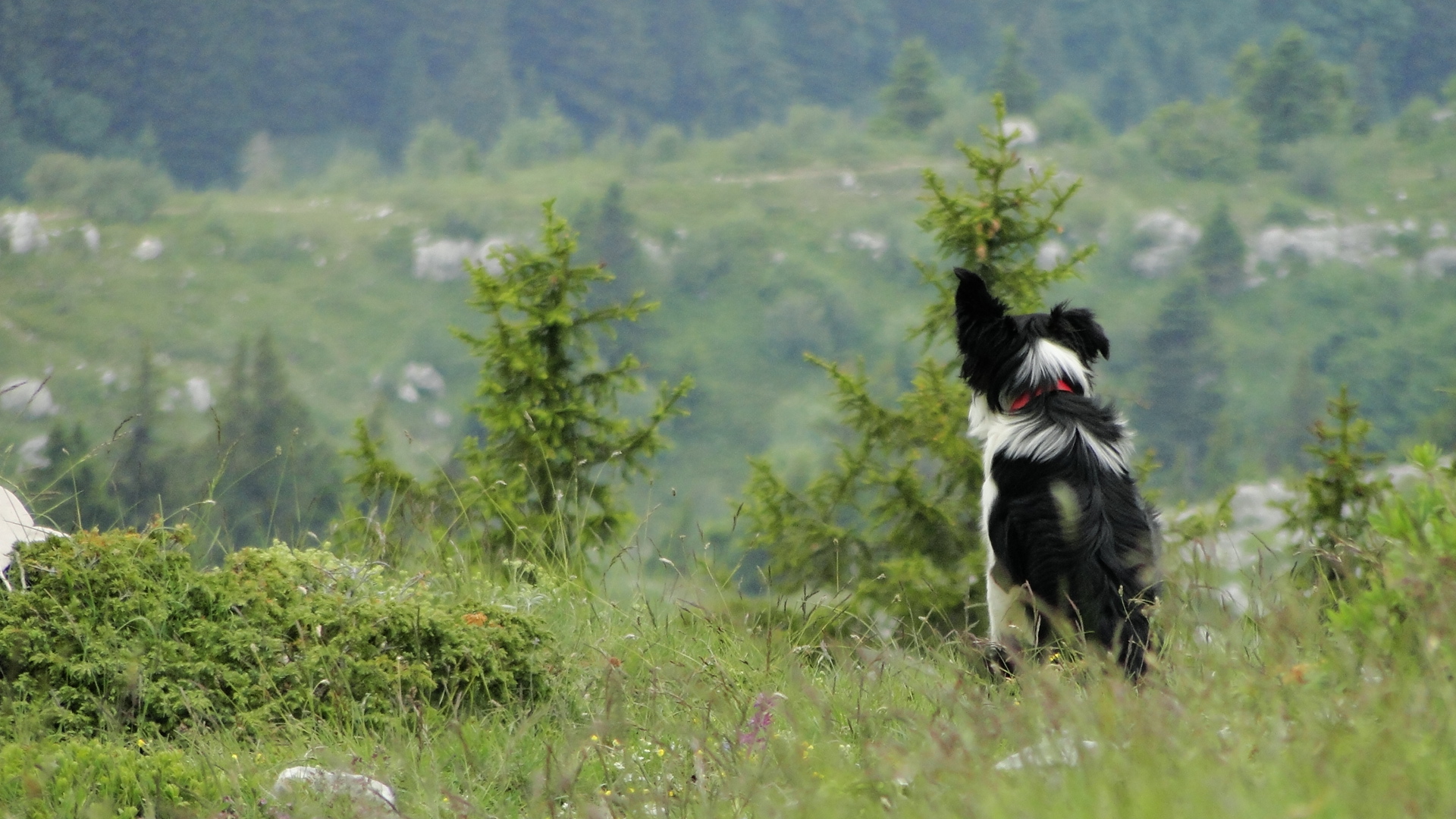
I’ve been raising ewes as a hobby breeder for 3 years (officially, because unofficially, I’ve had ewes at home for 9 years). Then one day came the crazy idea of starting up as a farmer, “for real”. To set up with my partner, on his family’s land, and take over the farm that had been handed down from generation to generation for ages. And that’s when you get slapped, phenomenally slapped. Administrative slaps, which slow you down like a reinforced concrete wall can slow down the momentum of a poor, longing fly. I’ve had the feeling for over a year now (installation procedure launched in October 2022) that I’m swimming the butterfly in a huge molasses bath or a huge Olympic swimming pool filled with heavy semolina. And if that wasn’t enough, there are administrators around the pool who press your head underwater with their foot, just to see if those with real bite will make it to the end without drowning.
The first group meeting takes place via the Chamber of Agriculture, to “take stock”. With a speaker full of certainties who assures me that I won’t have access to VAE because I don’t have “one year’s salaried agricultural experience”. Without VAE, no BP REA (Brevet Professionnel Responsable d’Entreprise Agricole). Without a BPREA, no DJA (Dotation Jeune Agriculteur – Young Farmer’s Grant, a big push to avoid hanging yourself in the first year of setting up). However, I did get my BPREA, thanks to a VAE and a super advisor in La Côte-Saint-André, who guided me expertly. Many thanks to her. 70 pages of documents (more than my master’s thesis!) and 3 months later, I had my BPREA. Then you meet a lawyer, an accountant, two lawyers, two accountants, and you ask yourself more and more questions. Because the choices you make now will commit you for the next 30 years of your life. And you can’t really go wrong. Because you’re not just committing yourself to equipment, you’re committing yourself to beasts, animals, little brebinettes and cows that will earn you a living for all those years. They’re not just “livestock” to me, they’re my daughters, my little protégés.
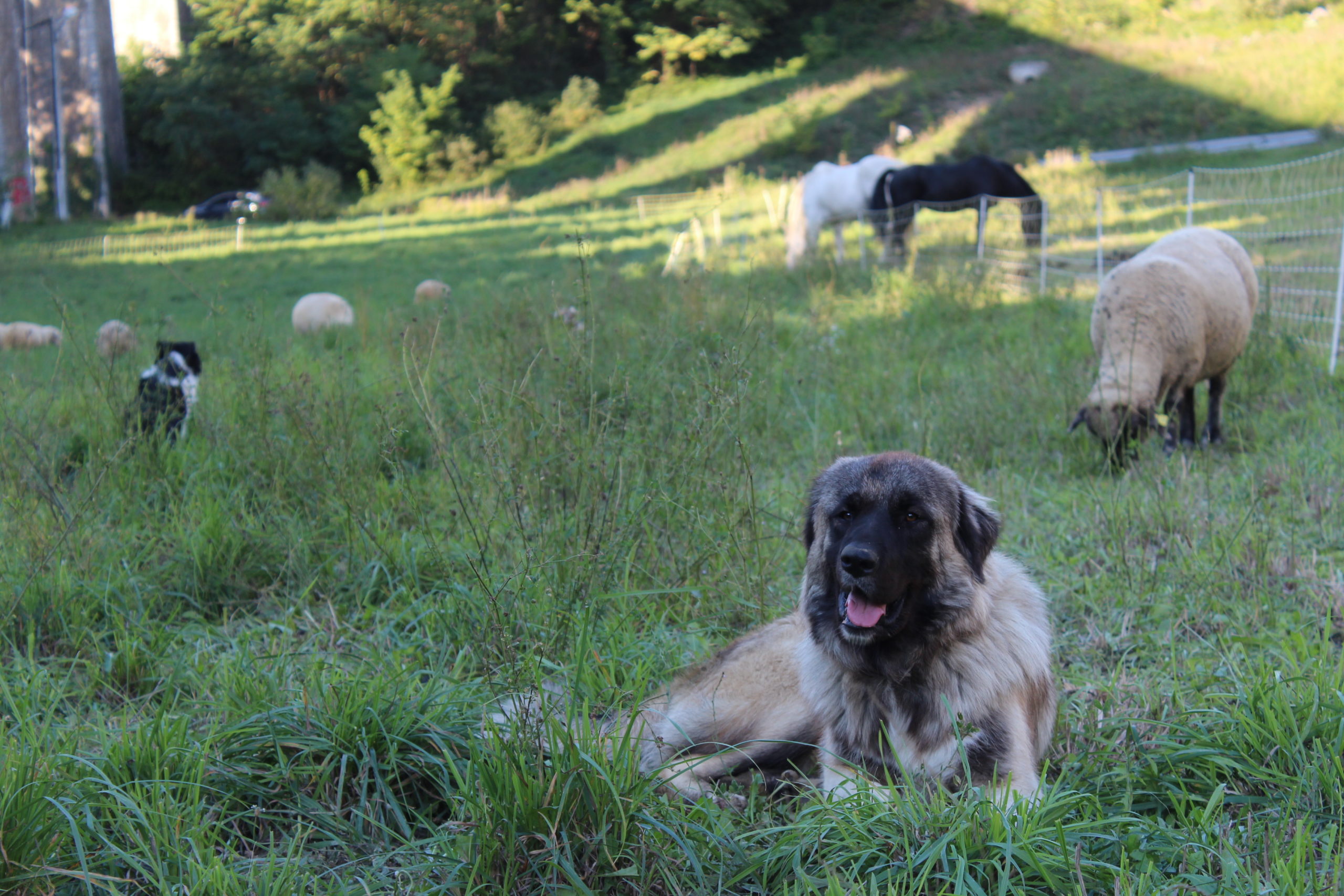
In the molasses-filled pool, you take a breath, even if it means you end up apneic, and you keep going. Because for ten years now, we’ve been lending a hand or working for free on this project, no longer going on vacation or sacrificing weekends with friends for all this (sorry, by the way, friends, for all the days and evenings I’ve put aside for this project).Then you have to come up with the money. 2,700€ to register the company, get a legal status, a SIRET number and leave the job to someone else to scrape up the paper. Then €30,000 to create the EARL shares. Then there’ll be the cows to buy, the equipment and, maybe one day, the land and buildings (because 15 years of salaried work and self-employment aren’t enough to pay for a mixed crop-livestock farm, even when there are two of you setting up). Not far from €250,000 all told. It stings. It stings, very, very hard.
We’ll have to hold out for quite a while, hoping one day to see the end of the pool. Then it’s time to start the real DJA process. And I can hear some people saying from here: “Yes, but it’s public money after all, so it’s somewhat normal that you’ll be asked for files and supporting documents in order to get the money”… I’ve received money in spades for professional training: €10,000 from the region for my riding instructor diploma, then another €8,000 for my Alpine Shepherd training, then a few months’ unemployment. All in all, not far from €20,000. At the time, all I was asked to do was fill in a form and I was on my way. There was nothing in return, apart from finishing the few months I’d spent on the course (and it wasn’t high-flying, if that’s what you think).
As a farmer. No way. For the same amount of money, you’re going to have to spend hours in the office, in front of the computer making your eyes bleed to understand legal and tax terms, commit yourself for at least 4 years to an economic trajectory, train yourself, fill out more files… and return the famous DJA if you don’t reach your objectives. It’s not very common to hand back the DJA, but that’s probably because the farmers who make the commitment are too passionate to stop, or too scared. Not to mention the Authorisations d’Exploiter to be applied for (which are still different from leases or tenancies, and still different from CAP declarations), the spreading plans to be drawn up, the health booklets to be filled in, the vet appointments for prophylaxis (compulsory blood tests every year for the entire herd in the case of cattle, and every 3 years in the case of sheep, on samples from the flock), the suppliers to be called back, the seeds to be ordered, the weather to be checked, not to mention sleeping and eating. And all this, of course, in between lambings, miles on the tractor or in the middle of the meadows, making parks, when it’s raining, when there’s a storm, having the bottoms of your boots splitch splitch and your underpants soaked. In the midst of people who take their dogs to shit in your fields because “it’s just grass” and you, the farmer, are seen as just the latest asshole because you plow on Sundays making noise while it was the family reunion (but no one wonders if you didn’t want to be with your family on that same Sunday, because it’s the only beautiful day in the middle of a storm of rotten days).
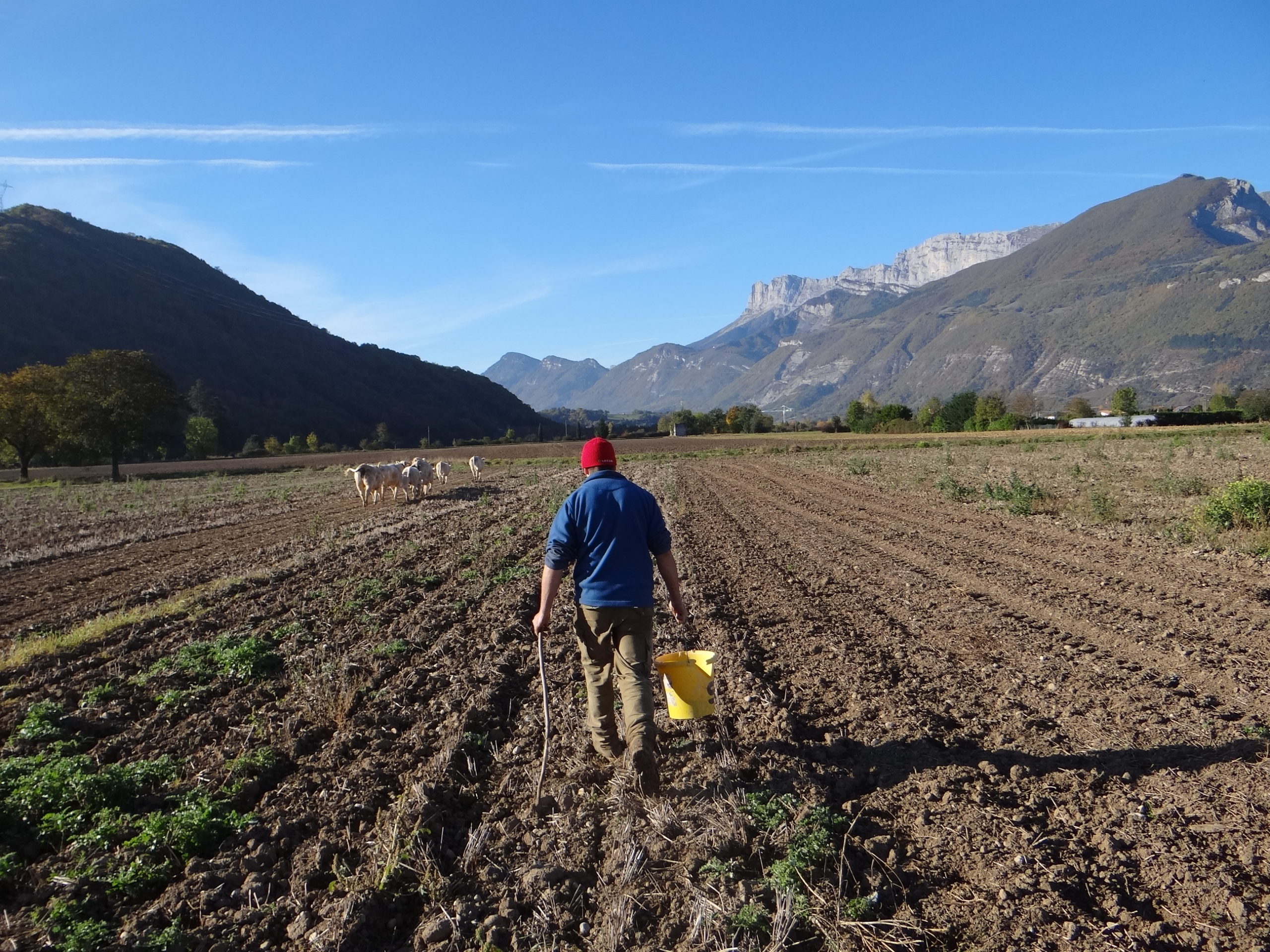
I won’t give up. I love it too much, even if it hurts sometimes, and we’re bored to death moving forward in a knife-edge fog. It gives me too much pleasure to hear my sheep bleating when I arrive, to see them running down the slope with my patou for a few strokes, some kibbles and a bit of barley. But I’d like to see one day a one-stop administrative office, with understanding people who can give us real solutions, who don’t make us wait 15 hours to fill in the same form 40 times with the same information, only to tell us after six months that your identity card has expired and that it’s going to be delayed again. Accountants who give us solutions tailored to our specific circumstances, instead of throwing Wikipedia-worthy explanations at us for €3,000 a year, while consulting the accounting results with an air of “that’s not so good”.
In 15 days, I’ll have a one-day skills assessment, followed by 3 days of Personalised Professionalization Plan (PPP, clearly for PAN PAN PAN). Before I’ve even put a toe in a tractor, I’ve already filled in, sent off and forwarded around twenty different documents, ranging from accounting to “sustainability analyses”, financial projections, installation project diagnostics, which will have to be completed by additional analyses and so on. A pace of life reminiscent of my preparatory classes for the ENS entrance exam – 6:00 a.m./11:00 p.m., every day, with no vacations or outings. And I’m not even talking about the technical documents I had to swallow to complete the sum of knowledge (necessary) for the management of living organisms – we’re talking thousands of pages.
So I’m not in a tractor tonight (we won’t really have enough money to renew the farm’s old-timers over the next few years), but I’m thinking hard about all those who are tearing their hair out over the insane amount of documents to be filled in, sent back and countersigned just to have the right to work. If I only had one wish, it would be to spend more time with my sheep and less with my computer… because you can eat a leg of lamb with onions and cooked carrots… you can’t feed a nation on paper and computer components.
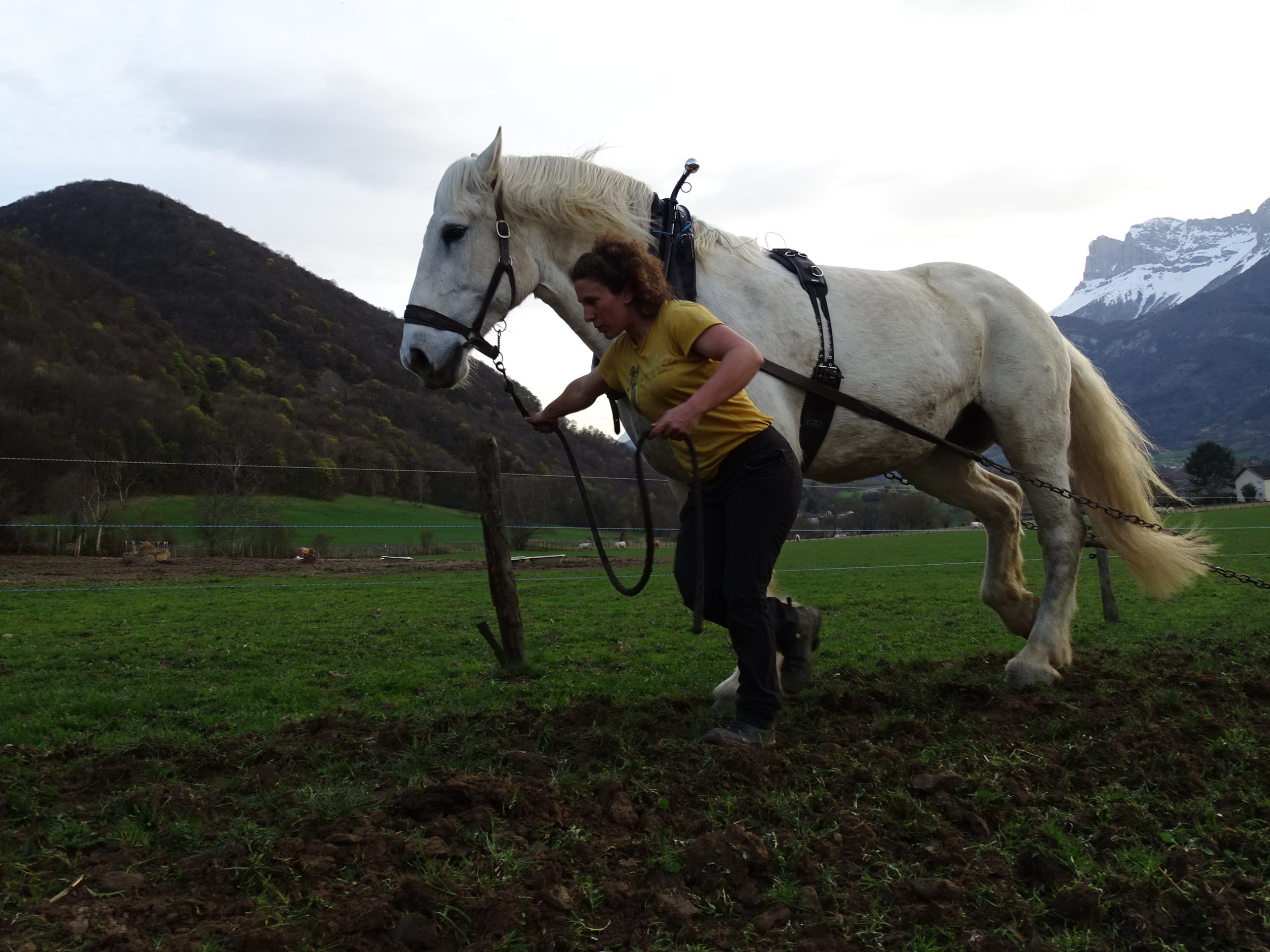
Originally from Réunion Island, Marie has always dreamed of settling in the alpine mountains. After a master’s degree in Evaluation and Management of l’Environnement et des Paysages de Montagne in Grenoble, she left her computer screen behind her computer screen for good to go and look after the ewes in the Vercors in 2014. Behind a desk, she feels she has no role to play in
change things and agricultural mentalities. You can’t rural traditions by simply pressing a few keys.
She went on to become an Equine Podiatrist in Isère. In 2023, the opportunity finally arose to take over her husband’s her husband’s family business. Since 2021, she has developed a small a small flock of ewes for meat, which she hopes to sell directly in parallel with Romain’s breeding of Charolais cows. More than a profession, it’s a way of life that’s hard to maintain with the phenomenal number of standards and administrative administrative procedures. Despite the difficulties, Marie and Romain want to promote sustainable agriculture, a blend of tradition and modernity at the foot of the Vercors.”
More
Letter From The Farm | Restoring Nature, Improving Productivity
Letter From The Farm | The More-Than-Human Magic of Transhumance
Under Pressure Commission Grants CAP Derogation, Extends Ukraine Import Liberalisation
‘Established democratic parties ignored problems of farmers for far too long’
Echoes of Discontent: Understanding the European Farmers’ Protests



